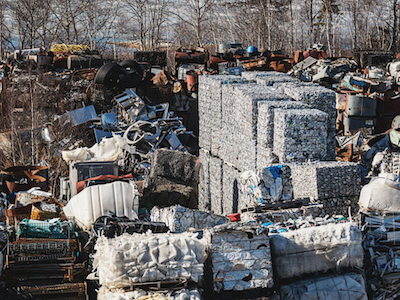Market
April 11, 2023
Ukrainian steel makers call for scrap export ban
A temporary prohibition on shipments of ferrous scrap abroad is necessary to provide Ukraine’s steel producers with strategically important raw materials as the war with Russia continues, according to Oleksandr Kalenkov, president of sector body Ukrmetallurgprom.
“If scrap metal remains in the country, more than 500,000 people will have a job, and the country will have millions of foreign exchange earnings from the export of steel,” he was quoted as saying in local media.
“At the same time, the military also benefits because metallurgists help the fighters a lot, buying for them equipment and cars, and even producing body armour. Nobody benefits from the export of scrap metal.
“So now the authorities should be proactive and temporarily ban exports until the situation stabilises and stops threatening national economic security.”
Russia’s occupation of eastern Ukraine has reduced the volume of ferrous scrap by almost 80% from regions which traditionally supplied significant volumes. Yet in January and February scrap metal exports were about 25,000 t, an increase of almost 60% on the previous two months, he added.
“Given the growth rate of the export indicator, at the end of the year we may see a figure of 250,000 tonnes or even 300,000 tonnes to 400,000 tonnes of exports – and this is absolutely unacceptable for a market that can barely collect about one million tonnes of scrap metal per year. After all, the industry will require more than a million, even in conditions of incomplete resumption of production,” said Kalenkov.
He warned the worsening scrap shortage may lead to temporary production stoppages at a time steel companies are trying to increase output because they realise the level of responsibility entrusted to them: more than 500,000 Ukrainians work in the metallurgical and allied industries which accounts for more than 10% of the country’s GDP.
Kalenkov also contended that a tonne of scrap metal processed into steel domestically gives ten times more to the government’s budget than the export duty payable to the EU.





